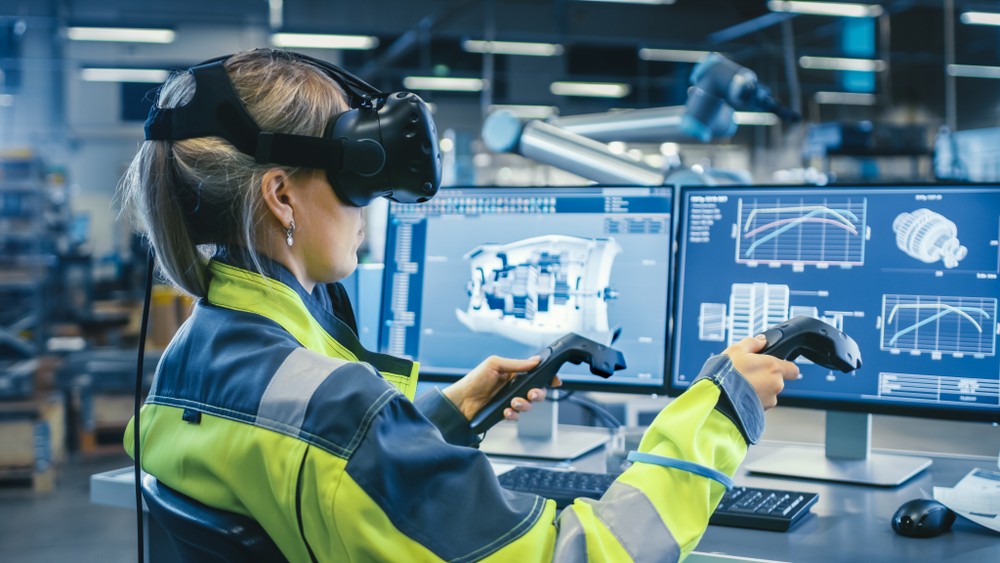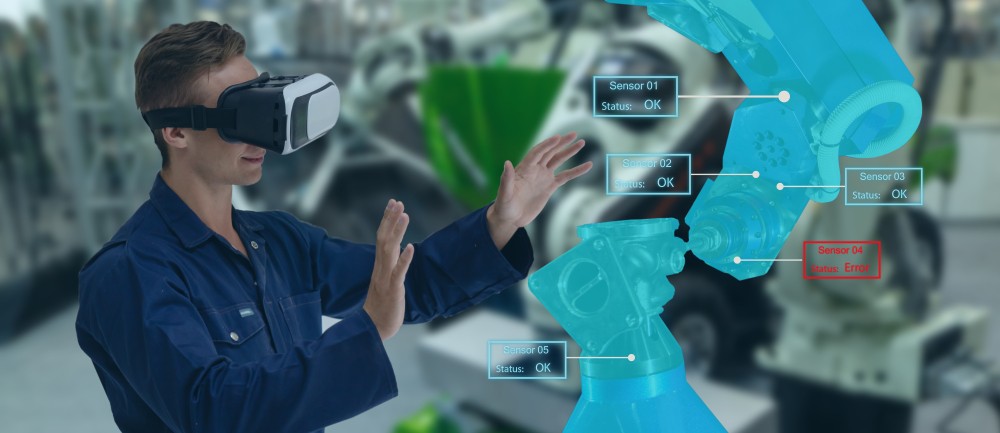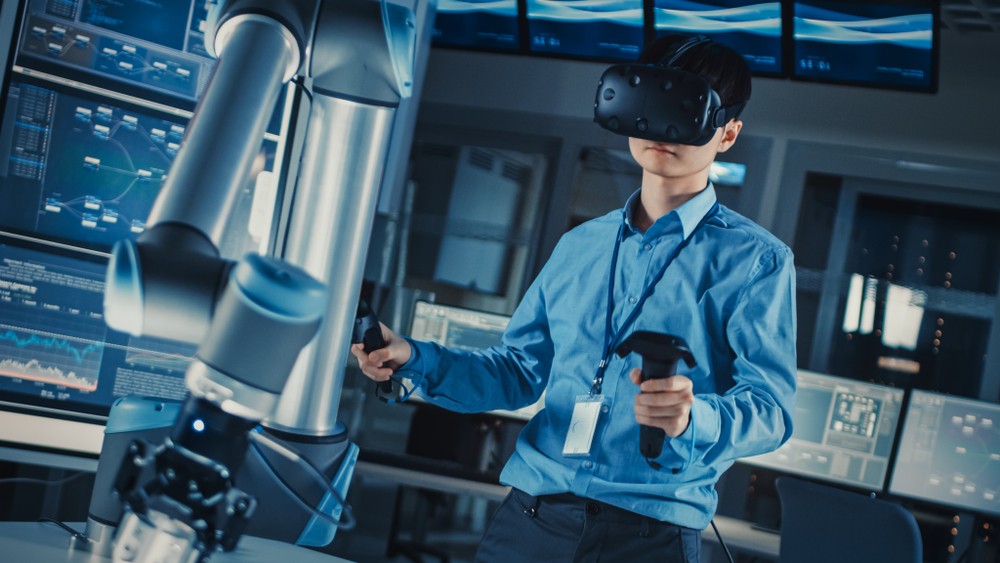The Industrial Metaverse: Coming Soon to a Factory Near You

There’s already been a lot of buzz about the metaverse in 2022. Spurred by Facebook’s corporate name change — to Meta Platforms — and the announcement of a virtual reality (VR) world about to go mainstream, the metaverse is looking like the next technology revolution. But while the concept is largely commercial, there’s an industrial metaverse developing behind the scenes.
What is the industrial metaverse?
The mainstream metaverse concept is primarily focused on social interaction, but the industrial metaverse is all about virtual creation and simulation. Using the industrial metaverse, manufacturers can change the way they create, build, and operate machines, vehicles, robots, and even buildings. By giving innovators an immersive development platform as close as possible to the real thing, this technology has the potential to dramatically improve product designs and production efficiency.

How can manufacturers use the industrial metaverse?
Manufacturers keen on the industrial metaverse are already brainstorming applications.
The earliest and simplest application is as a training platform for new employees. Manufacturers can create digital replicas of factory floors and allow new hires to get the lay of the land without interrupting production or posing a safety risk. Immersed in VR, new hires can use the industrial metaverse to learn complex tasks or solve hypothetical machinery problems.
Then there’s digital twin integration. With the industrial metaverse, manufacturers can check operations, troubleshoot problems, and train on real-time systems from almost anywhere. Combined with a machine cloud or digital twin, the remote capabilities of the industrial metaverse will facilitate the continuous improvement of company operations.
Finally, the industrial metaverse will make it easy for engineers to check the performance and quality of factory machinery. The metaverse can import real-time or historical data into scenario models, which will allow technicians to investigate failures, optimize service approaches, and gain a better understanding of factors pertinent to machine function. The result is a better-informed, proactive, and preventive maintenance approach.

The industrial metaverse is already here
Several companies are already experiencing the benefits of the industrial metaverse and making plans for expanding its use in the future. Boeing plans to build its next plane in the metaverse before bringing it to reality. Using digital twins, the company hopes to resolve the 70% of quality issues that originate as design problems prior to production.
“When the quality from the supply base is better, when the airplane build goes together more smoothly, when you minimize rework, the financial performance will follow from that,” said Boeing’s chief engineer, Greg Hyslop, commenting on the potential of the industrial metaverse.
Other companies using the industrial metaverse in some capacity, such as Hyundai and BMW, are showing the commitment of top-tier manufacturers to this next-gen trend.
More than a buzzword
People use the term “metaverse” for just about anything involving virtual reality, but there’s a lot more to it than that. It’s only a matter of time before the industrial metaverse becomes reality, and when it does, manufacturers can well and truly count themselves in the thick of Industry 4.0, or on the cusp of Industry 5.0.